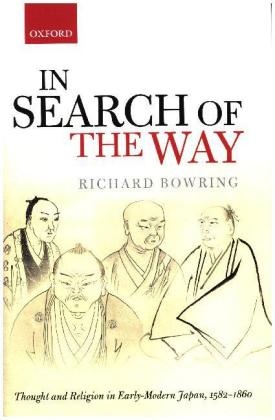Read more
In Search of the Way is a history of intellectual and religious developments in Japan during the Tokugawa period, covering the years 1582-1860. It begins with an explanation of the fate of Christianity, and proceeds to cover the changing nature of the relationship between Buddhism and secular authority, new developments in Shinto, and the growth of 'Japanese studies'. The main emphasis, however, is on the process by which Neo-Confucianism captured the imagination of the intellectual class and informed debate throughout the period. This process was expressed in terms of a never-ending search for the Way, a mode and pattern of existence that could provide not only order for society at large, but self-fulfilment for the individual. The narrative traces how ideas and attitudes changed through time, and is based on the premise that the Tokugawa period is important in and of itself, not merely as a backdrop to the Meiji Restoration of 1868.
List of contents
- Part I: 1582-1680
- 1: From Hideyoshi to Ietsuna
- 2: The fate of Christianity
- 3: Creating a new order
- 4: The Confucian turn
- 5: Two individualists
- 6: The Way of the Kami
- 7: The Way of the Warrior
- 8: The Way of Man
- Part II: 1680-1786
- 9: From Tsunayoshi to Ieharu
- 10: The encouragement of learning
- 11: Recasting the Chinese mould
- 12: Matters of faith
- 13: The Way of the Former Kings
- 14: Contesting Confucian values
- Part III: 1786-1860
- 15: From Ienari to Iemochi
- 16: Competing visions of the future
- 17: In search of times past
- 18: A new kind of Shinto
- 19: A time for action
- 20: Retrospect
About the author
Richard Bowring graduated from the University of Cambridge with first class honours in Japanese in 1968, and a PhD in 1973. He has taught at Monash University, Columbia University, Princeton University, and the University of Cambridge, taking retirement in 2013. He was made an Honorary Fellow of Downing College, Cambridge in 2013, and was awarded the Order of the Rising Sun, Gold Rays with Neck Ribbon by the Japanese Government in 2013.
Summary
A history of intellectual and religious developments in Japan during the Tokugawa period (1582-1860), this volume deals with social, cultural, and religious interplay, primarily focusing on the Neo-Confucian search for the Way, a pattern of existence that could provide order for society at large, as well as self-fulfilment for the individual.
Additional text
Professor Bowring's book is packed with information and insight, and will be revisited again and again by those who want to understand Japanese intellectual tradition.
Report
The book is eminently readable, packed with useful and interesting information vis-à-vis the ever-shifting religious scenery of the intellectually vibrant times of Tokugawa Japan; recommended reading to all. Lehel Balogh, Hokkaido University, Religious Studies Review

